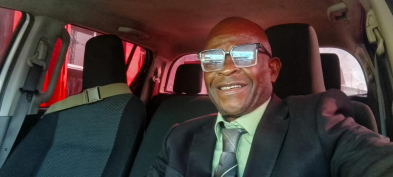The recent dismissal of three high-ranking officials at the Liberia Drug Enforcement Agency (LDEA), including Director General Anthony K. Souh, Deputy Director General for Administration Gwee K. Porkpah, and Deputy for Operations Sebastian Farr, has sparked intense public debate and political scrutiny in Liberia. President Joseph N. Boakai cited “administrative reasons” for the dismissals, which occurred on August 28, 2025, and promptly appointed an interim leadership team comprised of members from the Liberia National Police and the National Security Agency. The President emphasized that the restructuring was part of a broader government strategy to strengthen anti-drug efforts and combat the growing drug crisis within the country. He underscored the government’s commitment to eradicating illicit drug use and trafficking, framing the dismissals as a necessary step towards achieving a drug-free Liberia.
However, the timing of the dismissals, particularly that of Deputy Director General Gwee K. Porkpah, has fueled suspicions of a potential cover-up. Just days before his removal, Mr. Porkpah publicly alleged that high-ranking government officials were complicit in the drug trade, a claim that quickly gained traction in the public sphere. Montserrado County Senator Abraham Darius Dillon publicly announced the Senate’s intention to summon Mr. Porkpah to testify and provide evidence supporting his allegations upon their return. This declaration has amplified public speculation that the dismissals were politically motivated, designed to silence Mr. Porkpah and prevent him from exposing potentially damaging information about government involvement in the drug trade.
The confluence of Mr. Porkpah’s accusations and his subsequent dismissal has created a climate of distrust and fueled public demands for transparency and accountability. Many Liberians question whether the stated “administrative reasons” were merely a pretext to remove an official who posed a threat to powerful figures within the government. Social media platforms and public forums buzz with discussions about the dismissals, with opinions sharply divided between those who support the President’s authority to restructure the LDEA and those who believe the timing suggests a deliberate attempt to suppress dissent and obstruct justice. The controversy has cast a shadow over the government’s anti-drug efforts, raising concerns about the sincerity of its commitment to tackling the drug crisis.
Civil society organizations and transparency advocates have intensified calls for a thorough investigation into Mr. Porkpah’s allegations, demanding that he be afforded whistleblower protections and allowed to testify publicly before the Senate. They argue that a transparent and impartial inquiry is crucial to restoring public trust and ensuring accountability within the government. The pressure on the government to address these concerns continues to mount, as the public anxiously awaits further developments and demands answers to the lingering questions surrounding the dismissals. The 90-day review of the LDEA, tasked to the Minister of Justice, is now under intense scrutiny, with many demanding that it encompasses a full investigation into Mr. Porkpah’s explosive claims.
The interim leadership team appointed by President Boakai faces the daunting task of navigating this turbulent period and restoring public confidence in the LDEA. They are charged with overseeing the agency’s operations and implementing necessary reforms while the Ministry of Justice conducts its comprehensive review. The President has emphasized the importance of professionalism, diligence, and integrity within the LDEA, stressing the need for a robust and transparent response to Liberia’s drug crisis. However, the controversy surrounding the dismissals has created a challenging environment for the interim team, as they operate under a cloud of suspicion and public skepticism.
The central question remains: were the LDEA officials dismissed due to legitimate administrative concerns, or were they removed to silence a potential whistleblower and protect high-ranking government officials implicated in the drug trade? The answer to this question holds significant implications for Liberia’s fight against drug trafficking and the broader issue of corruption within the government. The public’s demand for transparency and accountability is clear, and the government’s response will be closely scrutinized in the coming weeks and months. The unfolding events will undoubtedly shape public perception of the government’s commitment to addressing the drug crisis and its willingness to confront corruption within its own ranks. The 90-day review period will be a critical test of the government’s resolve to address the underlying issues and restore public trust.














